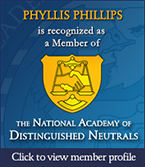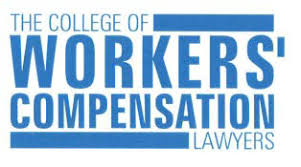
Mediation is a better alternative to litigation.
Phyllis Phillips is a trained mediator and former administrative law judge with decades-long experience in Vermont’s workers’ compensation law. She is skilled in the legal concepts that arise in civil liability claims as well, including those involving personal injury, property rights, employment, and sexual harassment.
Her approach to mediation is grounded not only in her ability to identify and address disputed legal issues, but also in her facilitative communication skills. These are necessary attributes for any successful mediator, no matter what the subject matter.
Litigation is all about legal issues. The “answer” to a litigated dispute is based entirely on the applicable statute or law. Most often, one party wins and the other party loses; there is no in-between. In contrast, the give-and-take flow of a mediated process encourages brainstorming, collaboration, and creative problem solving. For that reason, Phyllis stands with most litigants in preferring it to formal hearing or court proceedings.
Phyllis Phillips


